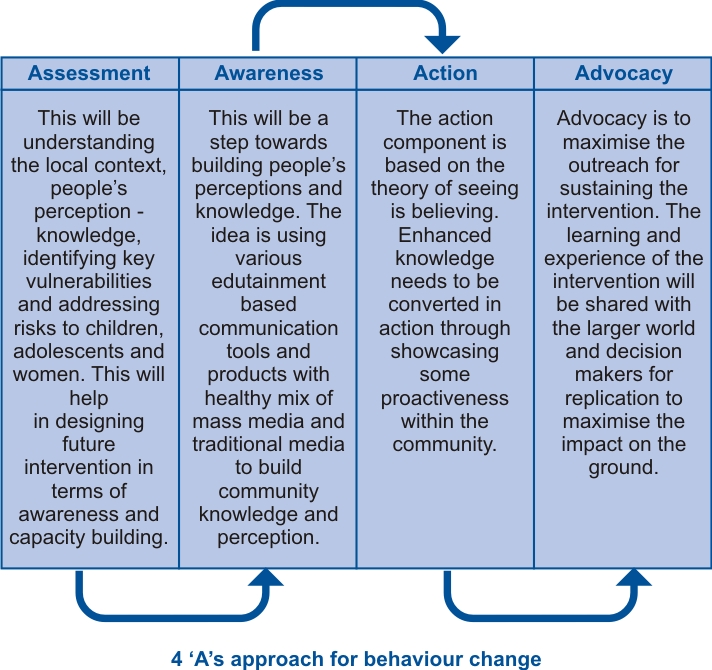|
Creating Climate Resilient Communities through WASH In developing countries, the incidence of diarrhea is expected to increase by around 5% for every 1°C increase in temperature. Climate change impacts are visible evidently in the Water, Sanitation and Hygiene (WASH) sector. Water as a resource is the most at risk whether in excess or in scarcity and it is the biggest link to equitable and inclusive development. Prime hazards for the Water, Sanitation and Hygiene (WASH) sector would be experienced through erratic weather events, increased frequency of droughts, flash floods and heat waves. The direct impact will adversely affect quality and availability of drinking water, critical infrastructure and hygiene and sanitation services. This has brought to focus the significance of the inter-linkages between the sustainable development goals. The need and access to water and sanitation is very closely linked to reducing vulnerability of women and children. Impediment of WASH would have a differential impact on women and children; therefore, it is critical to ensure that the concerns are addressed in the sustainable development sphere especially in the planning process to reach out to the last milestone. The emerging concerns of climate change need a social and behavioural change intervention solution to enhance awareness and knowledge of various stakeholders and bringing this knowledge into action.
Proposed pilot is to bring an action research model of social and behaviour change which brings about attitudinal shift among various stakeholders towards climate change and WASH. This will help facilitate the process of converting knowledge into action. Also, it will enable climate sensitive planning, implementation at different levels and help build adaptive capacities of the vulnerable groups. The 4 ‘A’s approach (assessment, awareness, action and advocacy) will be adopted as a methodology to bring social and behaviour change among the intervention groups. This is a tried and tested approach of Development Alternatives which helps facilitate the development processes. The idea will focus on two major components for conducting behaviour change. The first component would include interventions which will enhance knowledge and awareness of people about Climate Change and WASH, leading to change in people’s perceptions. The second key focus is to facilitate an environment where knowledge would be converted into action. In a nutshell, the project will create aspirations among various stakeholders through a process of vigorous sensitisation and finally build their capacity to contribute in the sustainable development process. The 4 As will systematically help us in achieving the outcomes. ■ Sutul Srivastava Reference:
|
 Development
Alternatives (DA) and UNICEF has initiated a collaboration with an
objective of addressing the above highlighted pertinent issues by
identifying challenges and developing solutions for building climate
resilience in communities.
Development
Alternatives (DA) and UNICEF has initiated a collaboration with an
objective of addressing the above highlighted pertinent issues by
identifying challenges and developing solutions for building climate
resilience in communities.